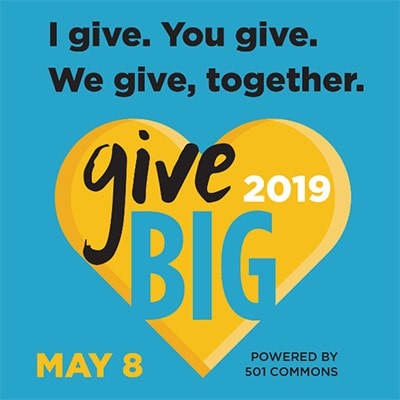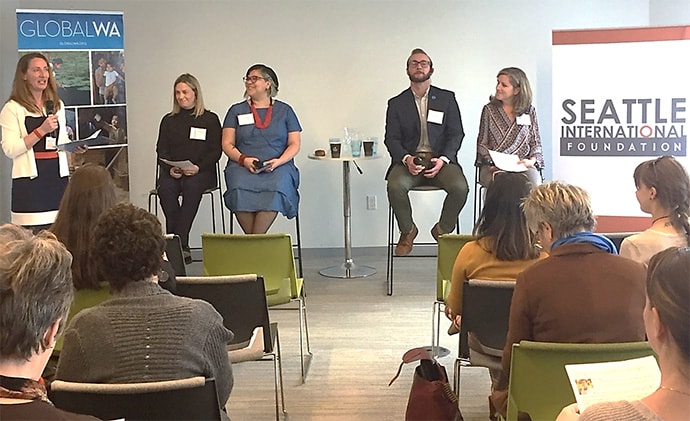Posted on May 8, 2019

As a 2019 GiveBIG marketing partner, Global Washington is thrilled to highlight our non-profit members that are participating in this year’s one-day online fundraising event. All of our members have a strong presence in Washington state and are working to improve lives in developing countries. Please consider supporting their work (and ours!) by making a donation today.
Posted on May 3, 2019
By University of Washington staff
Through the Task Force program, students in the Jackson School of International Studies tackle critical policy challenges — and set their career paths in motion.
A country is in the midst of a brutal conflict.
The capital city has become a battlefield, and residents are caught in the chaos. Food is scarce, and every bed in the understaffed hospital is full. Public utilities were cut off months ago, so there’s no running water, electricity or garbage collection.
As a foreign aid worker, you’re trying to get basic supplies to civilians. It’s work that involves more than simple logistics: Will you need armed protection to reach people safely? If you do, will some groups see you as a threat? And should you even be doing this if the government in power doesn’t want your country’s help?
At the Henry M. Jackson School of International Studies, students grapple with questions like these as part of the Donald C. Hellmann Task Force Program. By giving undergraduates the chance to address real-world crises, Task Force — the capstone project for all international studies majors — immerses them in culture, politics, economics and human rights.
It has also created a pipeline for the next generation of global leaders, which is more crucial now than ever. Read More
Posted on April 26, 2019
By Angelia Miranda
(With contributions from Sheila Panyam)

Kristen Dailey, GlobalWA Executive Director, gives open remarks for a panel on ending child marriage, co-hosted by GlobalWA and the Seattle International Foundation. Panelists (L to R) include Thea Handelman, Board Member, Women’s Justice Initiative – Guatemala; Perla Vázquez, Deputy Program Director, Seattle International Foundation, Central America and Mexico Youth Fund (CAMY); Eric Sype, Community Engagement Fellow, UNICEF USA; and Cathy Herholdt, Senior Communications Director, World Concern.
Photo credit: Andie Long/GlobalWA.
Of all the women and girls alive today, 650 million were married before the age of 18. For some, it happened when they were much, much younger. Child marriage, or early marriage, is a practice that is more widespread—and more complex—than one might think. Perpetuated by gender inequities, lack of access to education and resources, and social norms, child marriage is a critical issue that presents severe consequences for the millions of girls still at risk. The UN has identified the elimination of child marriage by 2030 as one of the Sustainable Development Goal targets. According to Kristen Dailey, Executive Director of Global Washington, in order to reach that target the global community needs to work 12 times faster.
Continue Reading

